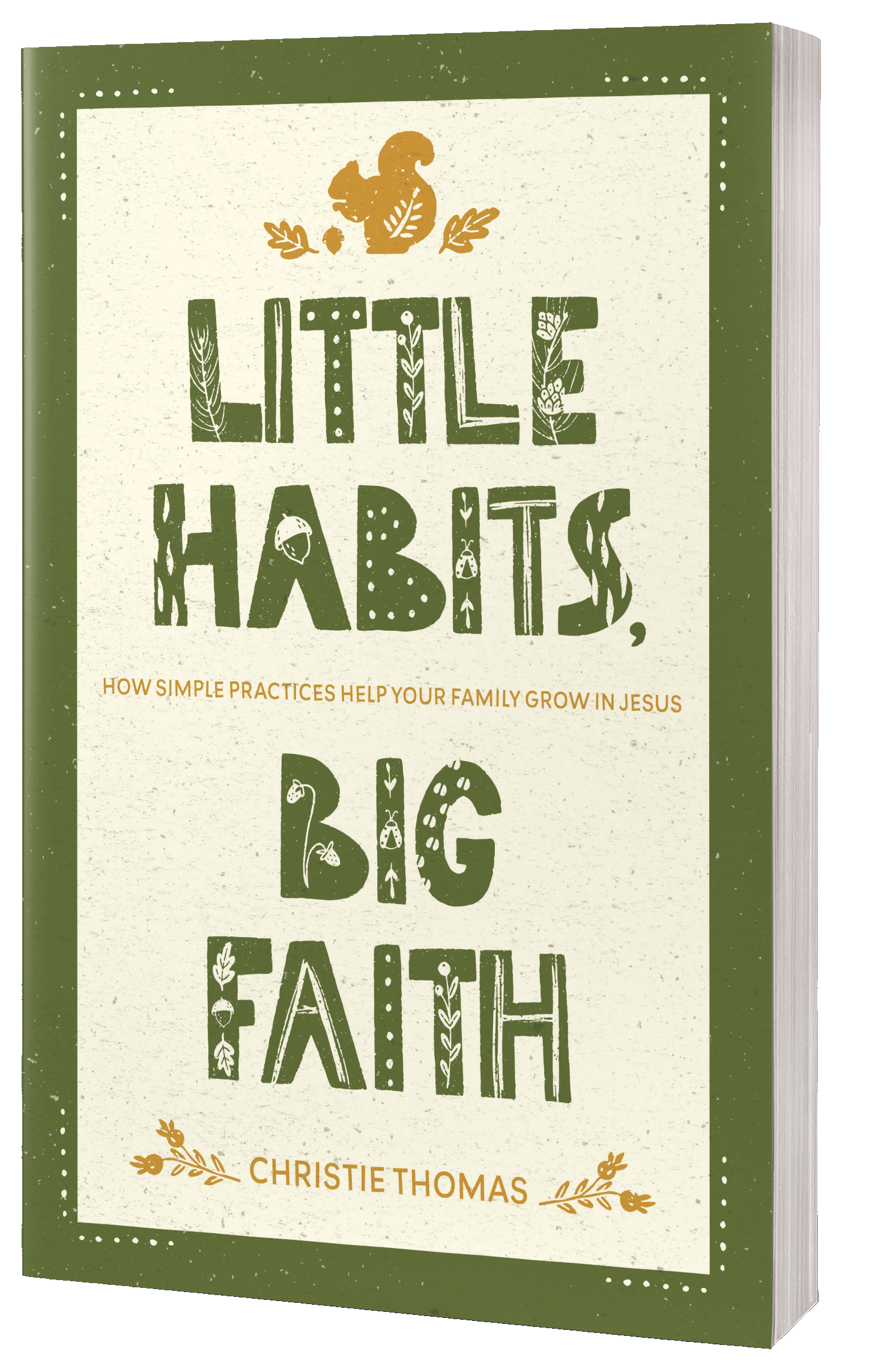My son came home from kindergarten, thrilled about the fact that Earth Day is coming up. His class had a litter-less lunch day and he’s been learning all about the importance of recycling to help our environment. For some reason, this is something all our kids know (and remind us of on repeat!) but we tend to forget about in the daily grind of raising families.
Christians are notoriously resistant to the idea of caring for the environment, usually because of misleading end-times theology…if we think we’re going to be raptured off the earth before it goes to pot, why bother caring?*
There are, however, two compelling reasons to care for the earth.
The best reason to care about the earth is because it is filled with Image-Bearers of God – people created and adored by our God. When our overconsumption and waste affects the atmosphere, severe droughts happen in sub-saharan Africa and tragic floods happen elsewhere. (article) Those men, women, and children are dying because we can’t stop buying. They reap the consequences of the consumerist first world. Scripture is quite consistent in reminding us not to forget about the poor, and to speak up for the oppressed and voiceless of this world.
The second best reason to care about the earth is because it is God’s, and we have been called to care for it as stewards. Good stewards do not rape and pillage the land; they carefully tend it so that it produces good fruit. (Not convinced? Here’s a great, non-judgy podcast on the topic!)
So how can we carefully tend the earth?
There are always the big-ticket items like putting solar panels on your roof, buying organic, growing your own food, and riding a bike to work. But what if you can’t do those things? What if you live in an apartment far from work and have no money for organic food? There are still ways to honour God with your consumption.
The old adage “reduce-reuse-recycle” is much quoted, and I know many people that do that recycling part quite admirably.
But did you know that recycling isn’t the best option? It’s actually the third option, not the first or even the second. Recycling still takes energy to convert a product from one thing to another, and oftentimes the things we recycle end up in the landfill anyway.
Sometimes, the things we so piously think we’re recycling end up in other nations, creating toxic piles of electronic waste that destroy water systems.
So let’s talk about the first one: reducing.
Not only will reducing help our world and the people who occupy it, but reducing is also a great way to practice contentment, which is a very Biblical idea!
What follows are 5 simple ways to reduce your consumption, many of which have the added benefit of saving you money! And who doesn’t want to save money? 🙂
5 simple ways to help the planet…and save your wallet:
-
Cut the packaging.
Most of our packaging comes from our food. Do your bananas really need their own plastic bag? How about that cabbage? Could you just stuff a few things in your purse for a few minutes rather than accepting another plastic bag at the drugstore? I have friends who are particularly fabulous at shopping without collecting any packaging. I am not so fantastic but it’s something in which I want to grow! Yes, it can be inconvenient to bring my own bags. But what is the cost of my convenience?
Our kids’ school lunches can also have a huge amount of packaging. Consider buying something like the lunchboxes we use, which have already lasted for 4 years without breakage or being lost!
-
Think twice before buying an electronic device.
Most of our electronics get tossed after a very short period of use. Not only is that wasteful, but toxins from batteries are leaking out all over the planet. Ew. Before making a purchase, ask yourself these two questions: Do I have a current device that will suffice? Will this device accomplish something useful in my life?
-
Buy used.
Most of our new items are created by underpaid labourers in impoverished communities, so it pays to decide if our newest desire is actually necessary. Buying used puts less strain on the system and is a great way to keep good items from going to the landfill.
-
Buy fair trade.
But that (#3 ??) doesn’t mean we need to live as minimalists. There are so many storefronts and online places to source out fair trade goods these days, it’s practically inexcusable to not even try! This one won’t save your wallet – in fact, it’ll be pretty hard on your wallet initially. But you will benefit in quality and longevity of your items, which will probably save you money in the long run.
- Turn it down and turn it off.
Turn down the temperature in winter (or turn it up in the summer so there’s less AC use), turn off the lights, and turn down the covers and climb into bed if you’re cold! (Kidding about that last one, but it does work!) Turn off the electronics when not in use, and turn off the water when you don’t need it. These are simple things, but when developed into habits can save you a lot of money and help us do our part here on the earth we were given!
[x_line]
I want to be clear that this post isn’t meant to be guilt-inducing. Guilt will make you want to hide, but conviction from God will make you want to change. As Ann Voskamp says in The Broken Way,
“First steps always seem like not enough, but they are the bravest and they start the journey to where you’re meant to go. It takes great trust to believe in the smallest of beginnings.”
[x_line]
*My comment about misleading end-times theology is rather blunt, but the whole idea of “the Rapture” (where Christians literally disappear from the earth before anything really bad happens) originated very recently in Christian history, and is not substantiated either by the Bible or traditional theology. Just cuz a super-fun novel series was written about the theory doesn’t make it true. ? Here is a great, non-judgy podcast on the verses that gave rise to that theory!
[x_line]
Did you find this motivational or helpful? Please share with a friend!





Thanks for the article about helping the environment without saying “climate change” or “global warming” 🙂
Those are hot-button words, aren’t they? Haha.